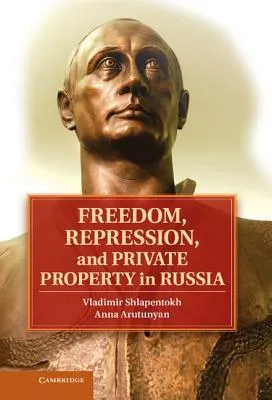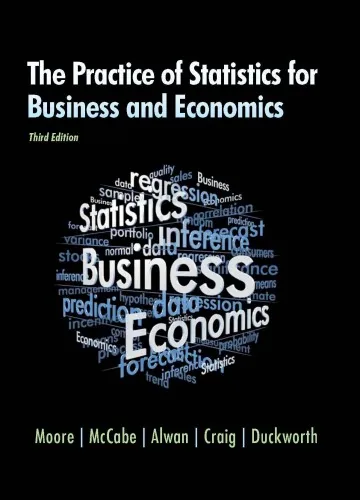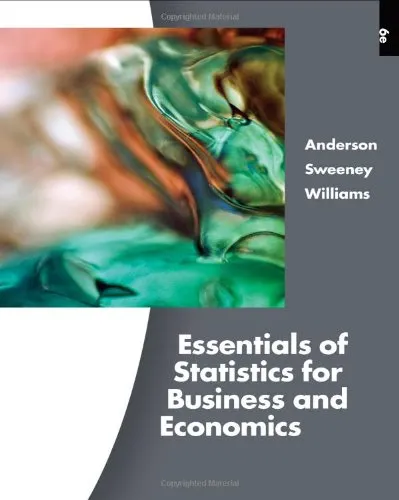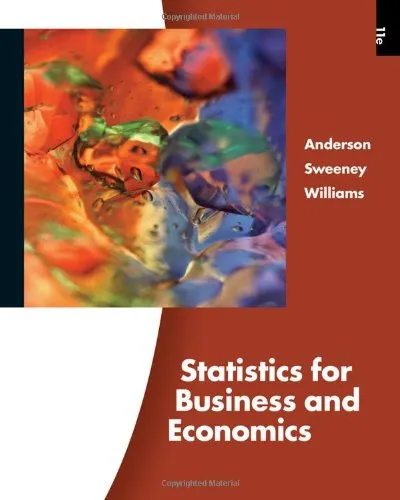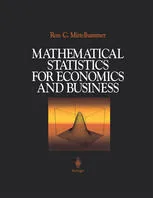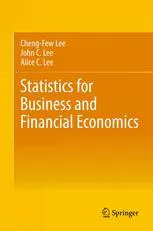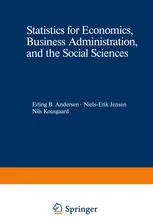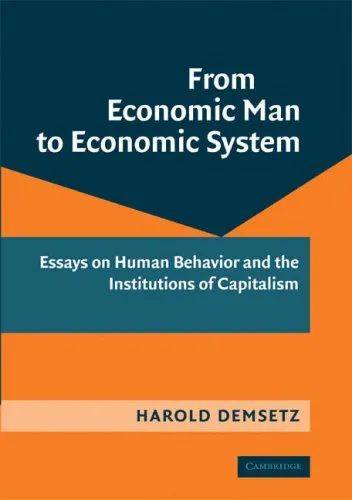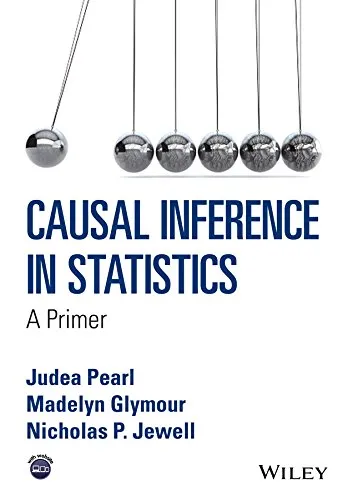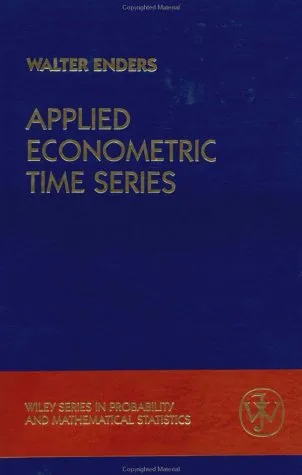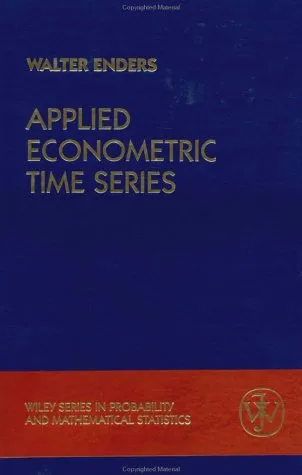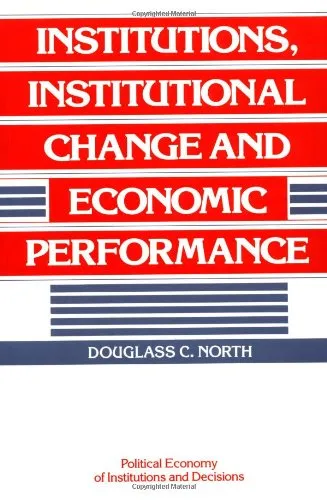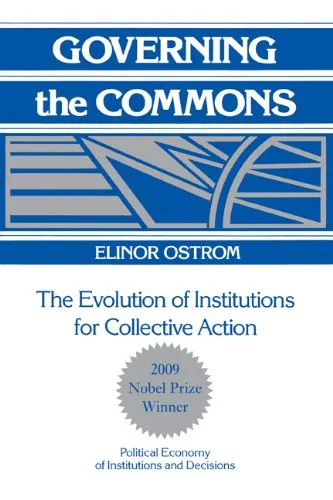Freedom, Repression, and Private Property in Russia
4.0
بر اساس نظر کاربران

شما میتونید سوالاتتون در باره کتاب رو از هوش مصنوعیش بعد از ورود بپرسید
هر دانلود یا پرسش از هوش مصنوعی 2 امتیاز لازم دارد، برای بدست آوردن امتیاز رایگان، به صفحه ی راهنمای امتیازات سر بزنید و یک سری کار ارزشمند انجام بدینکتاب های مرتبط:
معرفی کتاب «Freedom, Repression, and Private Property in Russia»
کتاب «Freedom, Repression, and Private Property in Russia» یکی از تأثیرگذارترین آثار در زمینه شناخت روابط پیچیده میان آزادی، سرکوب و مالکیت خصوصی در تاریخ و جامعه معاصر روسیه است. اثر ولادیمیر شلپنتوخ و آنا آروتونیان، با تحلیلی عمیق و مبتنی بر تحقیقات گسترده، پرسشهای اساسی را پیرامون نقش مالکیت خصوصی در شکلدهی به آزادیهای فردی و اجتماعی بررسی میکند. این کتاب بهطور خاص راههایی که رژیمهای سیاسی در روسیه از ابزار سرکوب برای مدیریت روابط اقتصادی استفاده کردهاند را برجسته میسازد.
خلاصهای جامع از کتاب
این کتاب به کاوش در تاریخ تحولات سیاسی و اقتصادی روسیه میپردازد و نشان میدهد که چگونه مالکیت خصوصی بهعنوان یکی از مؤلفههای اصلی آزادیهای فردی، در روسیه تحت تأثیر سرکوبهای دولتی و اجتماعی قرار گرفته است. نویسندگان بر این باورند که بحرانهای سیاسی، زیرساخت فکری و اقتصادی روسیه را در مسیری قرار داده است که ارتباط میان مالکیت و آزادی به شدت پیچیده و وابسته به نظام حکومتی شده است. به عبارت دیگر، این کتاب مسیری را که روسیه از دوران تزارها تا دوران پوتین طی کرده است بررسی میکند و توضیح میدهد که چگونه ابزارهای کنترل سیاسی بر ایجاد مالکیت خصوصی و آزادی فردی مؤثر بودهاند.
یکی از نکات کلیدی این کتاب این است که نویسندگان، مالکیت خصوصی را تنها جنبهای اقتصادی نمیدانند، بلکه آن را پلی میان آزادی فردی و ساختار قدرت سیاسی میدانند. آنها نشان میدهند که حکومتهای روسی چگونه از طریق سرکوب، هم مالکیت خصوصی را محدود کرده و هم آن را به ابزاری برای تثبیت قدرت خود تبدیل کردهاند. این تحلیل نه تنها به توضیح وضعیت فعلی روسیه کمک میکند بلکه به فهم گستردهتر چالشهای میان آزادی و قدرت در جوامع دیگر نیز میافزاید.
نکات کلیدی کتاب
- نقش مالکیت خصوصی در کنترل آزادیهای فردی و اجتماعی.
- تحلیل عمیق روابط رژیم سیاسی با اقتصاد و سیاست.
- نحوه استفاده دولت از ابزارهای سرکوب در طول تاریخ روسیه برای تثبیت قدرت.
- بررسی تناقض میان گرایشهای آزادیخواهانه و محدودیتهای حکومتی در زمینه مالکیت خصوصی.
- نقد نظامهای سیاسی روسیه و جستجوی مسیرهایی برای تغییر در ساختار حکومت.
جملات مشهور از کتاب
"The history of private property in Russia is not just an economic tale, but a deeply political narrative that speaks volumes about the fate of freedom in the country."
"Repression is not merely a tool of control; it is the means through which the state seeks to redefine the very notion of freedom."
چرا این کتاب اهمیت دارد؟
کتاب «Freedom, Repression, and Private Property in Russia» به دلیل تحلیل بینظیر خود درباره یکی از موضوعات حساس و پیچیده جامعه روسیه، اثری ویژه و ارزشمند است. این کتاب نه تنها برای دانشجویان علوم سیاسی و اقتصاد بلکه برای افرادی که علاقهمند به تاریخ و سیاست معاصر هستند، یک منبع ضروری به شمار میرود. اهمیت این کتاب در این است که واقعیتهای سیاسی و تاریخی را با نگاه علمی بررسی میکند و نتیجهگیریهایی که ارائه میدهد، میتواند الهامبخش رهبران، محققان و حتی فعالان سیاسی باشد.
Introduction to "Freedom, Repression, and Private Property in Russia"
"Freedom, Repression, and Private Property in Russia" provides a nuanced exploration of the intricate relationship between individual liberty, state repression, and the development of private property in Russian society. Written by Vladimir Shlapentokh and Anna Arutunyan, this book delves into key historical moments, socioeconomic structures, and political ideologies that have shaped Russia's unique trajectory. The authors offer deep insights into how private property has intersected with state authority and societal expectations, fostering a richer understanding of Russia's past and present.
The book is an essential guide for scholars, policymakers, and general readers who seek to comprehend the synthesis of freedom and repression in Russian life. It challenges the reader to critically assess the tension between personal autonomy, state oversight, and the evolution of economic systems both historically and contemporarily. This introduction aims to summarize the essence of the book, highlight its major takeaways, spotlight memorable quotes, and discuss its relevance in today’s world.
Detailed Summary of the Book
At its core, "Freedom, Repression, and Private Property in Russia" grapples with the paradox of how freedom and repression can coexist within a particular socio-political framework. The authors trace the role of private property through various epochs in Russian history — from the pre-revolutionary period, through Soviet collectivization, to the post-Soviet transition toward market capitalism.
The narrative begins by examining Tsarist Russia, where limited property rights were tied to hierarchical privileges. Moving into the Soviet era, Shlapentokh and Arutunyan highlight drastic state intervention in property ownership through policies like collectivization, where the state's grip intensified and private ownership shrank. These transformations are framed against the backdrop of ideological dogmatism, suppression of dissent, and the gradual erosion of both economic and political freedoms.
In the post-Soviet period, the authors analyze the chaotic redistribution of property during the 1990s, characterized by corruption, new elites, and emergent oligarchs. This era reshaped the debates around freedom and repression, with contemporary Russia showcasing a peculiar mix: residual authoritarianism paired with selective liberal economic policies. Ultimately, the book sheds light on how the concept of private property has not only been an economic instrument but also a political one, used to both empower and suppress Russian citizens.
Key Takeaways
- The interplay between state and property remains critical in understanding Russian history and governance.
- Freedom and repression are not mutually exclusive; they can coexist in complex, often paradoxical forms, influenced by cultural and historical legacies.
- Economic reforms in Russia have often been used as mechanisms of political control, reflecting deeper tensions in its governance model.
- The development of private property in Russia reveals not only economic but also systemic societal divisions between citizens and the state.
- Understanding Russian approaches to freedom and repression provides broader insights into how different societies grapple with similar themes in varying historical and cultural contexts.
Famous Quotes from the Book
"Freedom in Russia is not the absence of repression; it is the negotiation of space within boundaries that are both rigid and pliable."
"Private property, while often seen as a cornerstone of economic autonomy, has in Russia served as a reminder of the state's omnipresence."
"The Soviet project did not destroy private property in its ideological totality; rather, it reimagined it as a tool of collective repression."
Why This Book Matters
The significance of "Freedom, Repression, and Private Property in Russia" lies in its ability to dissect the complexities of Russian society through the lens of historical, political, and economic paradigms. This book is not merely a recounting of events but an analytical work that bridges academic rigor with accessible language, making it a pivotal resource for anyone seeking to understand Russia's enduring struggles with modernity.
The broader implications of this book extend well beyond Russia; it prompts readers to think critically about how freedom and repression might manifest in their own societies and what role property ownership plays in structuring power relationships. As global conversations around democracy, economic inequality, and state authority endure, the lessons from Russian history remain both relevant and thought-provoking.
دانلود رایگان مستقیم
شما میتونید سوالاتتون در باره کتاب رو از هوش مصنوعیش بعد از ورود بپرسید
دسترسی به کتابها از طریق پلتفرمهای قانونی و کتابخانههای عمومی نه تنها از حقوق نویسندگان و ناشران حمایت میکند، بلکه به پایداری فرهنگ کتابخوانی نیز کمک میرساند. پیش از دانلود، لحظهای به بررسی این گزینهها فکر کنید.
این کتاب رو در پلتفرم های دیگه ببینید
WorldCat به شما کمک میکنه تا کتاب ها رو در کتابخانه های سراسر دنیا پیدا کنید
امتیازها، نظرات تخصصی و صحبت ها درباره کتاب را در Goodreads ببینید
کتابهای کمیاب یا دست دوم را در AbeBooks پیدا کنید و بخرید
1482
بازدید4.0
امتیاز0
نظر98%
رضایتنظرات:
4.0
بر اساس 0 نظر کاربران
Questions & Answers
Ask questions about this book or help others by answering
No questions yet. Be the first to ask!
